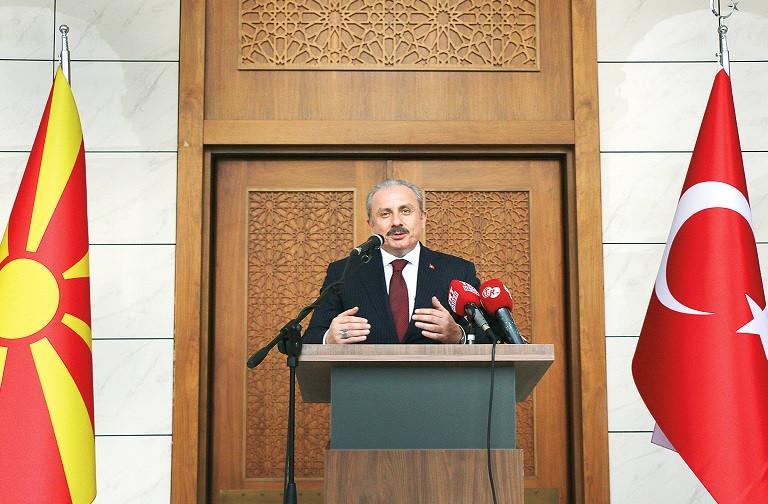
Turkish parliament speaker on Dec. 22 said his country was not obliged to the U.S. or any other country due to the global politics evolving from a two-polar to a multi-polar one that offers many alternatives.
Mustafa Şentop commented on a variety of issues on Turkey’s foreign agenda such as the sanction move by the U.S., ratification of Turkey-Libya military cooperation deal and rising xenophobia and racism in Europe.
Şentop told Anadolu Agency that the U.S. administration used sanctions as a threat element, especially since the election of President Donald Trump, but he did not believe that sanctions would have any significant effect on Turkey.
He underlined that sanctions and embargoes would not harm Turkey given that the country had alternatives and diversity especially in the defense industry.
He went on to argue that Turkey had already faced an unofficial sanction with the U.S. attempts to remove Turkish administration from the F-35 fighter jet program, adding Washington said it would not hand over the planes.
“Isn’t this a sanction, embargo? Did we not see a similar case regarding drones and Patriot missiles?” he asked and noted that the previous negative attitude of the U.S. on Turkey led to Turkey’s purchase of Russian S-400 missiles.
“As for the F-35s, Turkey evaluates alternatives, and is not confined to any other country including the U.S.,” he asserted.
The parliament speaker underlined that Turkey was not in a two-polar world order of the 20th century, the country always had alternatives in today’s multi-polar political environment across the world.
He said he thought the sanction and embargo plans would not adversely affect Turkey’s economy and defense industry, but would harm the bilateral relations.
Referring to the Turkish-Libyan military pact and its ratification by the parliament, Şentop said: “In fact, this [agreement] is like the continuation of the previous agreement Turkey reached with Libya regarding the exclusive economic zone.”
Şentop said the agreement was founded on a legitimate basis as it was signed with the U.N.-recognized Government of National Accord (GNA), which fights Khalifa Haftar, who is supported by mercenaries and “some” Arab countries.
The parliament speaker said Europe today witnessed both Islamophobia and xenophobia due to its cultural structure which is “enclosed” and “singular.”
“Maybe, there has been a political plurality, however, [Europe] acted with an understanding based on a single culture,” he said, adding globalization has changed the globe significantly as cultures freely moved around the word.
“Europe is not ready as it has a monist cultural system. Now, it meets new cultures,” he added.
Şentop went on to say that the European population had aged gradually and the continent was in need of dynamic and young people to sustain its social security structure.
He also said there were many people resorting to living abroad due to unrest, and wars triggered by the European countries, as well as financial grievances hindering a life with high standards.
The migration of these people might have a positive impact on Europe, contributing to its multi-cultural, multi-religious and multi-language social structure, Şentop added.
Şentop said he was in North Macedonia to mark the Turkish Language Day of Dec. 21.
He added that North Macedonia was located in a strategically important region where genocides and massacres were observed in the past century and the country plays a vital role for regional and global peace.
Stating that Turkey was the first country to recognize the independence of North Macedonia, Şentop stressed that Turkish administration always supported the country at difficult times and amid its membership process to European-North Atlantic organizations.